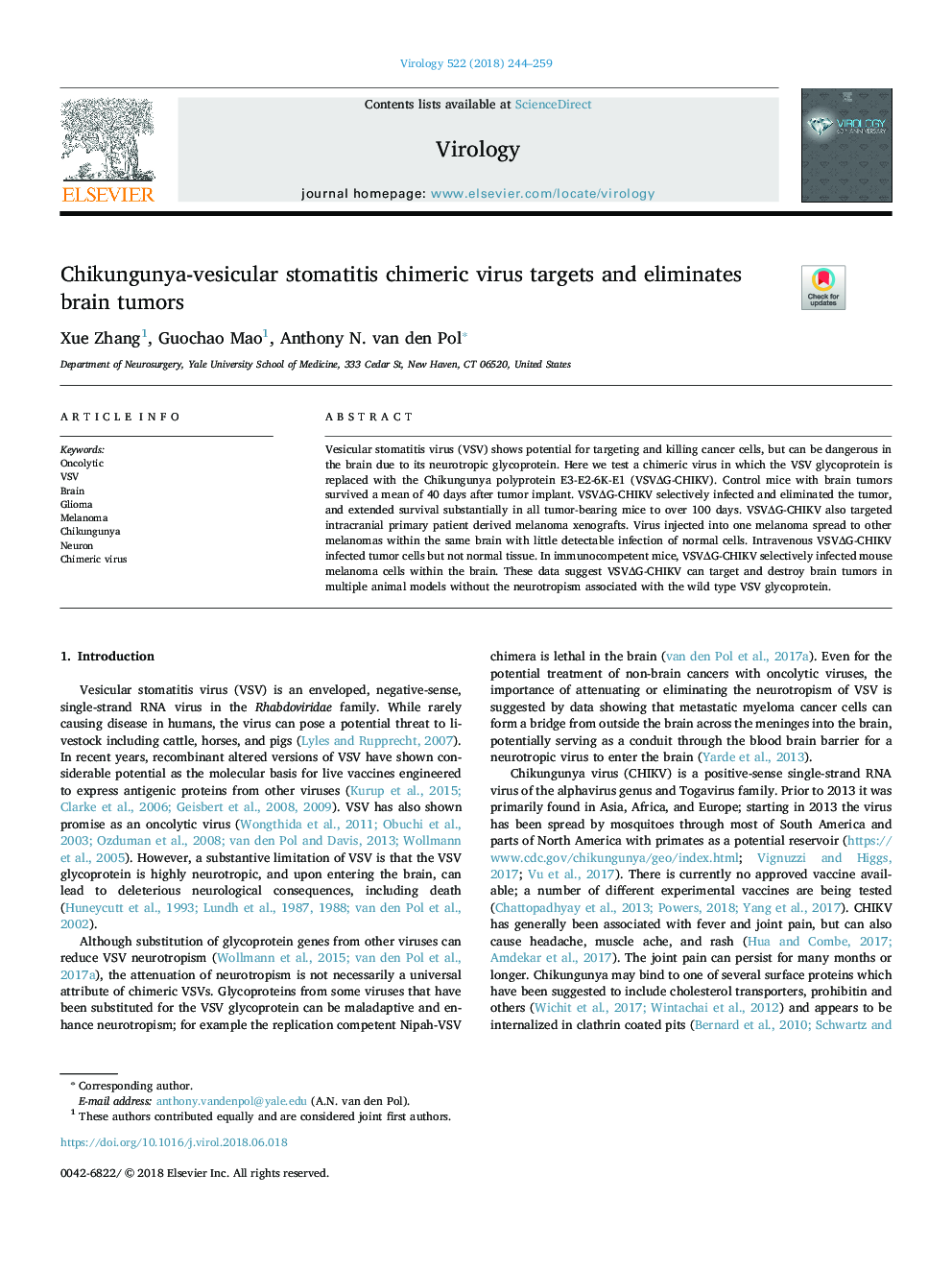| Article ID | Journal | Published Year | Pages | File Type |
|---|---|---|---|---|
| 8751369 | Virology | 2018 | 16 Pages |
Abstract
Vesicular stomatitis virus (VSV) shows potential for targeting and killing cancer cells, but can be dangerous in the brain due to its neurotropic glycoprotein. Here we test a chimeric virus in which the VSV glycoprotein is replaced with the Chikungunya polyprotein E3-E2-6K-E1 (VSVÎG-CHIKV). Control mice with brain tumors survived a mean of 40 days after tumor implant. VSVÎG-CHIKV selectively infected and eliminated the tumor, and extended survival substantially in all tumor-bearing mice to over 100 days. VSVÎG-CHIKV also targeted intracranial primary patient derived melanoma xenografts. Virus injected into one melanoma spread to other melanomas within the same brain with little detectable infection of normal cells. Intravenous VSVÎG-CHIKV infected tumor cells but not normal tissue. In immunocompetent mice, VSVÎG-CHIKV selectively infected mouse melanoma cells within the brain. These data suggest VSVÎG-CHIKV can target and destroy brain tumors in multiple animal models without the neurotropism associated with the wild type VSV glycoprotein.
Related Topics
Life Sciences
Immunology and Microbiology
Virology
Authors
Xue Zhang, Guochao Mao, Anthony N. van den Pol,
